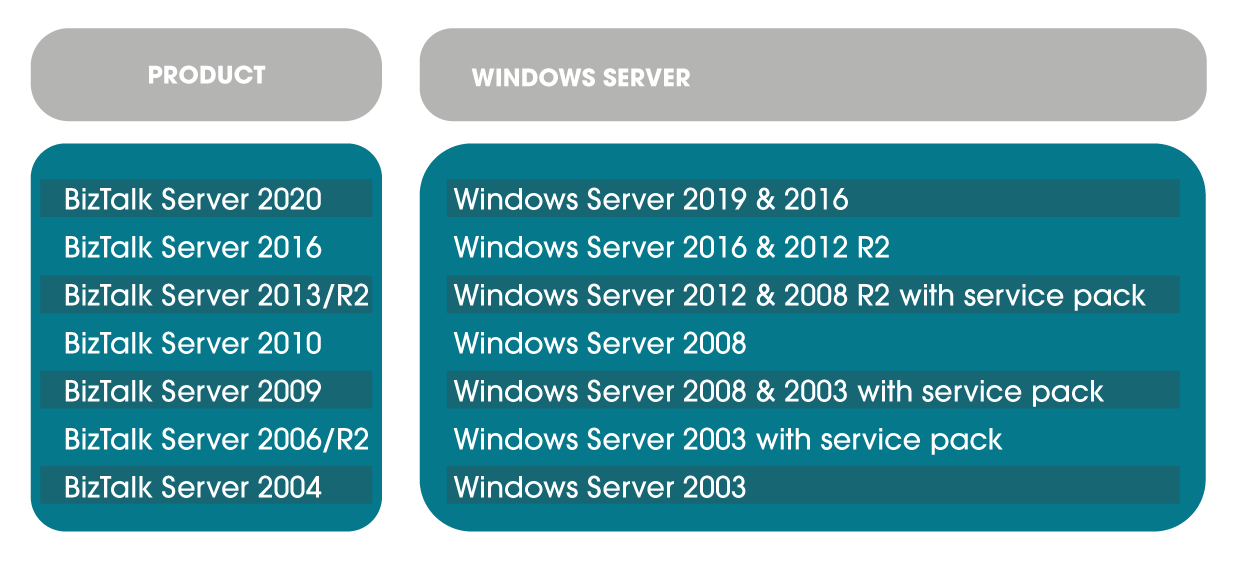In this blog, we look at the different BizTalk Server versions along with the corresponding end of support and the overall BizTalk lifecycle. The first BizTalk Server was released in the year 2000 and since then we have seen regular releases until the latest release – BizTalk Server 2020.
Organisations who have been using BizTalk Server for a while may have lost track of which version they are using, when support has run out, if and until when extended support is available and so on. So we are going to catch all these end-of-support dates here.
The BizTalk Lifecycle – BizTalk Server Versions
This is a complete summary of each BizTalk Server version, its release date, end of mainstream support and end of extended support, also known as end of life. You can also note rapidly which versions are currently being supported.

BizTalk Server and Windows Server
Being on old unsupported BizTalk servers is one issue, but BizTalk is stable and often the bigger issue is that old BizTalk servers run on even older Windows Server versions and this is a greater support problem. Below is a convenient guide on which Windows Server each BizTalk Server version supports.

Here is a roundup of each Windows Server version, its release date, end of mainstream support and end of extended support, also known as end of life. You can also note rapidly which versions are currently being supported.

Your BizTalk Server Roadmap – When and How to Modernise
Using the information above and following the instructions in this document as required (What Version of BizTalk Server Do I Have? | Microsoft Docs) you will be able to see if you are using an out-of-support version of BizTalk or the accompanying Windows Server.
Anything earlier than this is not within support or extended support, which means applications are at risk. Let’s look at exactly what you may be missing.
Mainstream Support
This is the main life of a product, you can expect to see cumulative updates occasionally and have the ability to request design changes and new features. Additionally, you can open support tickets, get security updates, security support, non-security fixes and so on.
Extended Support
During this phase, you can open paid support tickets and get security updates but no non-security fixes, features or design changes will be acted upon. There are no updates released during this period.

You can read more about what the fixed lifecycle looks like at Microsoft in this policy: Fixed Lifecycle Policy | Microsoft Docs
Extended Security Update Programme
There is a last resort for organisations who need to run legacy applications past even extended support. This is the Extended Security Update (ESU) programme. It only includes critical and sometimes important security updates and is for a maximum of three years past the end of extended support date.
This programme is purchased and not available for all products, it currently includes some Windows Server versions and no BizTalk Server versions. Details can be found here. FAQ – Extended Security Updates | Microsoft Docs
Other Modernisation Factors
Aside from access to support and security, there are two other large drivers in modernising. The key is of course the latest features and functionality available in newer versions.
The second is that due to the nature of BizTalk, it is interacting with and may depend on a large range of other applications which may not be supported by an older BizTalk version. As time passes, this becomes more of a factor, with newer software being designed to make the most of the latest BizTalk features and increased functionality in newer applications no longer being compatible with older BizTalk versions.
Keeping this in mind, you can see why you do not want to find yourself on BizTalk Server 2006, depending on Windows Server 2003!
A note about BizTalk Modernisation
Due to the nature of the updates, you cannot always make a leap from an old BizTalk Server version to the most recent, for example from BizTalk Server 2003 to BizTalk 2020. You may find you require a migration to BizTalk 2016 first, and then from there, the migration to BizTalk 2020 becomes possible. Or perhaps at that point, making the jump to the cloud and Azure Integration Services would be on the horizon.
BizTalk Migrations at Transparity
With Windows Server 2012 and BizTalk Server 2013 recently out of support, we have been undertaking a wide range of BizTalk migrations.
However other clients have BizTalk servers dating as far back as 2006. With this type of migration, all older versions are being brought up to BizTalk 2016 and then addressed from there.



